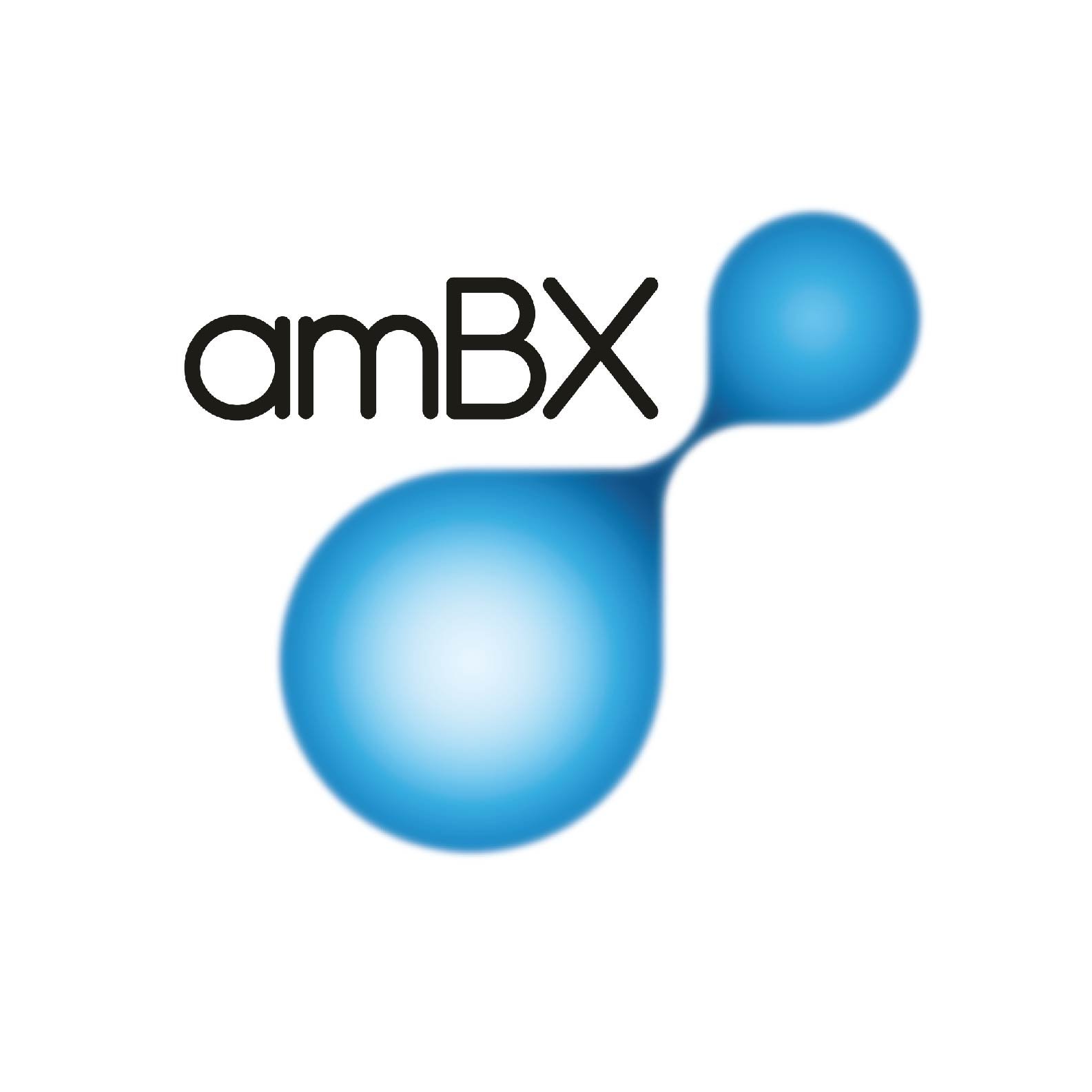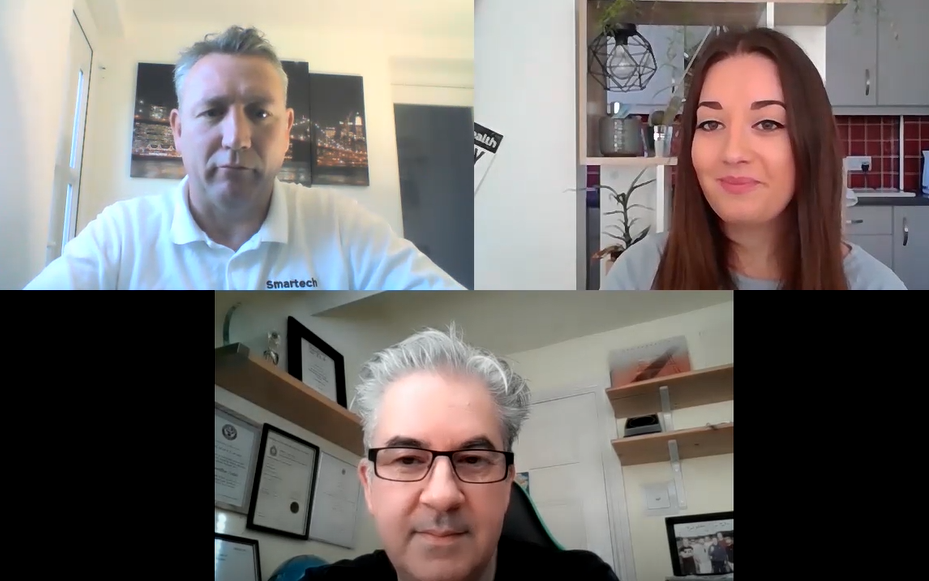amBX and Smartech Partnership
Interview with Jack Martin, Smartech and Andre Jutel, amBX
amBX and Smartech have partnered to create an end-to-end solution that truly meets the needs of the market. This interview explores the benefits and joint aspirations of the partnership. If you would prefer to watch the video interview in full, click here.
Or if you’re pressed for time, check out these two short round-up videos explaining the benefits of the partnership:
Benefits of the amBX & Smartech Partnership - Jack's perspective
Benefits of the amBX & Smartech Partnership - Andre's perspective
Jack – I’ve been within the lighting controls industry in different forms for 25-30 years, and I started my own business about 18 months ago - so here we are, Smartech lighting controls! We’re an independent design, supply, commission, and aftercare lighting controls company, and we’re delighted to be partnering with amBX!
Andre – I’m the Business Development Manager for amBX; I’ve worked within the lighting industry for 20 years, mainly within the LED, emergency lighting control, and a fair few other things in between…but we’re really happy to have Jack on board with Smartech, and I think we have a very bright future.
Jack, what attracted you to amBX SmartCore? What advantages do you feel we bring to the market?
Jack - I think the thing that attracted me was the fact that lighting controls over the last 20 years haven’t evolved or changed. Obviously, with the inception of wireless controls and modern technology, people are wanting smart buildings and looking at how they can make their building work for them, and that pointed me to towards you guys. SmartCore is different. It’s not what traditional lighting controls look like, and that is a great differentiator; I think it will be a great disruptor within the market, so I decided to pursue this option.
Andre, what do you think makes Jack and Smartech such a great fit for amBX and unique within the market?
Andre - Well, look at the experience Jack has got! Jack has seen most of the things that have come through the lighting and lighting controls industry. Jack has a breadth of experience, he has knowledge and understanding, and he’s not been tied to one particular brand.
The great thing about Jack and Smartech is that Jack is very well organised and knows what he’s doing, he’s got the right contacts, and importantly, he gets what we do – which is essential. As Jack said, what we do is really disruptive in the market, but also, it is the future – all of our lives these days are governed by software. If you look at products coming out these days, there’s usually hardware and software, and in some cases no hardware; things are becoming more software-centric. We clearly play to that element of the market, and Jack understands that software will be the future.
Working with Smartech gives us the benefit of someone who understand the traditional lighting controls market and translate his understanding to new technology like SmartCore, communicating this to Consultants and others within the supply chain in a way that they will understand.
What are the main benefits of the partnership?
Andre – For me, it is Jacks's experience and knowledge of the market; there is no substitute for experience. Also, Jack is very responsive, he understands our vision, and he can translate that to key industry players. We’re not stuck in the traditional controls market, although we have a solution that can effectively replace some of that…We’re here as a complimentary service that can truly deliver a smart building, taking the principles of software and applying it to smart lighting.
Jack – I think having amBX and SmartCore as a partnership brings something that the lighting controls industry has missed for a number of years. If we go back to the very early days when companies like Moorlight and Philips had their own lighting controls divisions within their organisations, they were able to offer the full solution, but through time it became untenable, and they dropped a lot of them, they changed focused, and no longer offered a turnkey solution. For the last 10 years, I don’t think anyone’s been able to replace that; however, now we can truly offer a turnkey solution where the software ‘does what it says on the tin’ (if I were to steal a phrase from an advert). I’ve used the phrase a few times, but it makes the building smart, and by adding the hardware, you have the full solution. My strength is that Smartech know the hardware, and we know how to install and commission the hardware; adding in this layer of software on top really makes the building smarter; to me, it is a no brainer.
Andre – Yeah, I think you’re absolutely right. One of the things we’re trying to do is add an element of simplicity to the whole scenario. In the world of software that we now live in, we take these things for granted; we expect our phone to automatically pair to the car when we get in and for there to be a constant stream of communication between the two devices…why shouldn’t we do the same for lighting control. A lot of the advancements in the last five to ten years have led to less hardware, simplification, ease of use…and as part of that, the whole process and whole industry is harnessing software. If you look at the smart building industry, e.g., BMS, security, etc., lighting controls is one of the few parts of a still quite antiquated building and is still putting large metal boxes everywhere. Our approach couldn’t be more different from the traditional lighting controls set-up; we are in line with the rest of the industry; as I said, if you look at BMS companies, e.g. Honeywell, Johnson Controls, etc. all of those guys are using software solutions, they all have cloud-based services that are interoperable and ingest other products and services into them - the idea is that everything talks to each other, creating an interoperable building. The proprietary controls that exist out there will die, no doubt about that. People will look to software to be able to do smarter enablement and interoperability within their building – and that, for us, is an important thing; unifying all those different elements within a building is the goal; there’s no reason lighting shouldn’t be part of that.
You mentioned there the ability to make buildings truly smart which I think is key, but just summarising what you have discussed, what would you say is the joint ambition for the partnership over the next 5 years is - what do you hope to achieve?
Jack – I think it’s time that buildings became smarter, and we are probably at the front of the curve. We can make old buildings smart; we don’t necessarily have to build a new build to get a smart building, which is where the software comes in. There are thousands of old buildings up and down the country and across the world that are not smart or intelligent; they are ageing, old buildings. By investing in software, we can make their building smart; I guess the next 5 years lay out a plan and a strategy that doesn’t dismiss old buildings and work with key clients. Times are changing, we’re in the middle of a global pandemic, and there are buildings out there that are costing companies a lot of money because they’re inefficient. We can help them maximise their efficiencies through software.
Andre – I think you’re right, and the one thing the pandemic has shown us is that the use of buildings is changing. But companies can’t just turn their building off and come back in 6 months when we’re all vaccinated. So they do need to be flexible and adaptable spaces. One of the things we’ve seen in the lighting industry recently is things like Dali 2. Some of the extensions they are going to be introducing will be looking at things like preventative maintenance and condition monitoring. As a business, we’re set-up to accommodate that.
In the next 5 years, as Jack said, a lot of buildings will be repurposed; what we do isn’t all about new builds; it’s simply about smart enablement. It’s about using existing infrastructure within buildings and improving it to make the building smarter, but also allow building and facility managers to look at their building and understand what it’s doing because, in my experience, a lot of people have the technology installed that they don’t understand it. It might be fit for purpose, but no one has bothered to tell them how to use it, so we’re all about utilising current technology and helping people understand it, giving them the ability to view data in real-time. Data is only ever any good if used, understood, and actioned otherwise; it’s just useless information. This ultimately makes a building smart and improves the user experience so that the people within the building get some benefit from it and feel it is a place they want to go to.
I think that is a challenge because people are ultimately becoming more accustomed to working from home. Landlords will need to look at their properties and review them. If they find that they are old, ‘unintelligent’ buildings, they will need to do some work to attract businesses and provide a better user experience for occupants.
It sounds like a very exciting opportunity for us both, and I think we can make a real difference with this partnership.

